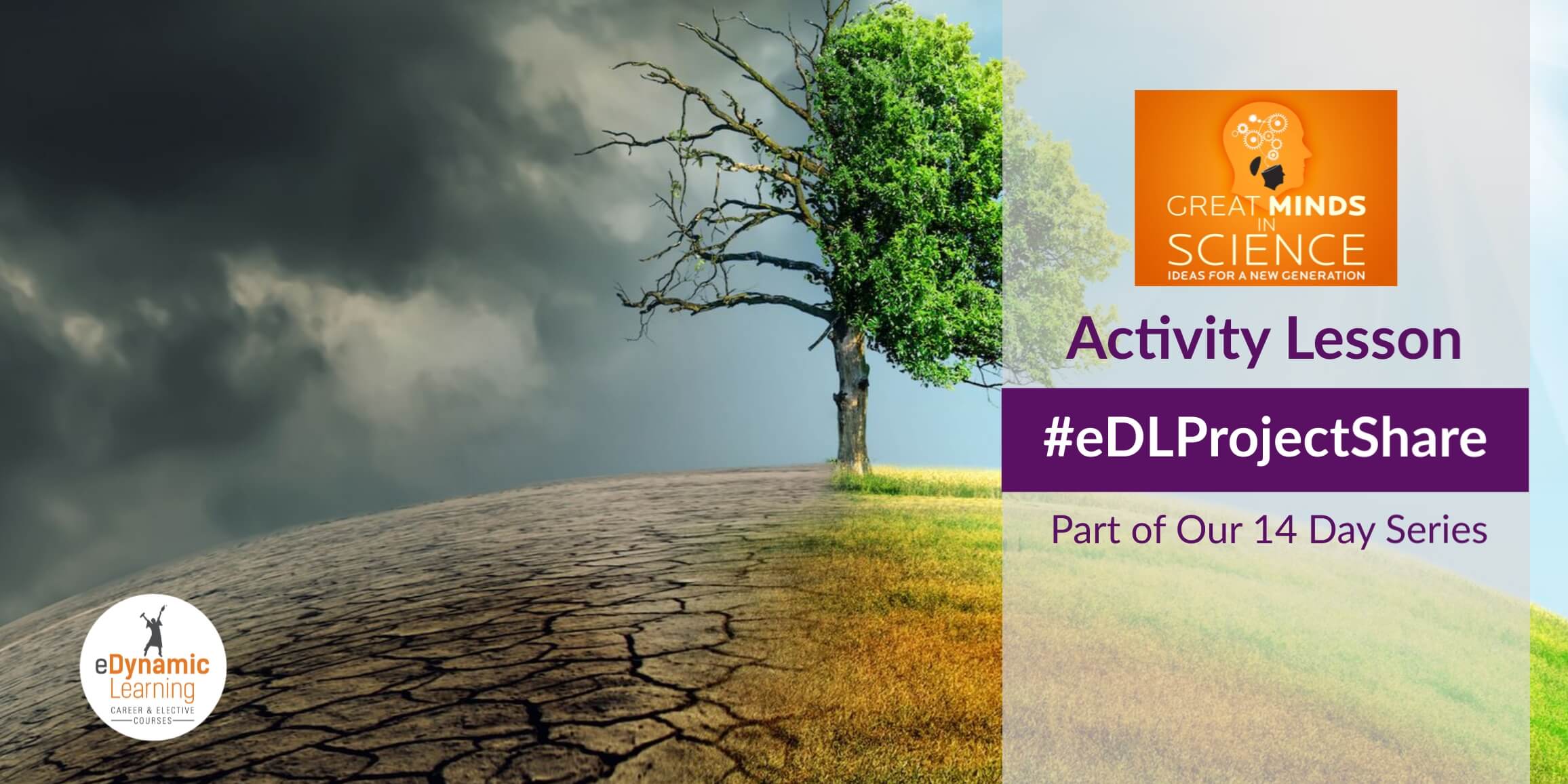
Activity: Climate Change Persuasive Essay
April 9, 2020The following activity is part of our 14-day #eDLProjectShare series. These TED talks are located in our high school course, Great Minds in Science: Ideas for a New Generation; Unit 9: Al Gore: Fighting Climate Change.
Directions:
- Complete the following activity. Use the rubric located below the activity to assess how you are completing each of the required components.
- (Optional): Feel free to share your project progress or the final project with a short video or picture on Twitter or Facebook using the hashtag #eDLProjectShare @eDynamicLearning. *If you are under 18, you must have your teacher or parent or guardian’s permission to post.
- (Optional): For teachers and parents looking to use as a graded activity, a rubric worth 15 points is located at the bottom of the activity.
 Activity: Evaluating Persuasive Arguments
Activity: Evaluating Persuasive Arguments
This activity is broken up into three parts:
- Learn about the speaker
- Watch and evaluate two TED Talk videos on the topic of climate change.
- Complete a written essay that evaluates whether or not the TED Talk videos support a persuasive argument.
Part 1: Meet the Speaker:
Al Gore: Fighting for Climate Change
“Many scientists are now warning that we are moving closer to several “tipping points” that could — within as little as 10 years — make it impossible for us to avoid irretrievable damage to the planet’s habitability for human civilization. In this regard, just a few weeks ago, another group of scientists reported on the unexpectedly rapid increases in the release of carbon and methane emissions from frozen tundra in Siberia, now beginning to thaw because of human caused increases in global temperature. The scientists tell us that the tundra in danger of thawing contains an amount of additional global warming pollution that is equal to the total amount that is already in the earth’s atmosphere.” Al Gore, NYU Law School speech, 2006
Born in 1948, Al Gore grew up in Tennessee and Washington D.C. His father was a Senator for the U.S. Congress and his mother was one of the first women to graduate from Vanderbilt University Law School. After high school, Gore enrolled at Harvard University, where he started as an English major. However, several courses would shift his focus. In 1967, Gore took a climate course, which began his interest in the environment and climate concerns. A political science course helped to create Gore’s interest in politics and government, which led to a change in his major to government.
After graduation, Gore served in the US Army in Vietnam for two years, although he was personally against the war. When he returned from the war, Gore attended Vanderbilt University Divinity School and began working for The Tennessean as an investigative reporter. From 1974 to 1976, Gore attended Vanderbilt University Law School, although he dropped out before graduation to run for office. At the age of 28, Gore was elected to The United States Congress. He served in the House of Representatives from 1977 to 1985 and in the Senate from 1985 to 1993, representing the state of Tennessee. In 1993, Gore became the Vice President of the United States after agreeing to run for the position with now former President Bill Clinton. The two served for two terms. Gore ran for the office of President in the 2000 Presidential Election and won the popular vote in the election, but lost the Electoral College to George W. Bush amid legal controversy over votes in Florida.
After the election, Gore turned his attention back to the environment and the climate crisis. He authored An Inconvenient Truth, a bestselling book on the global warming threat. The book is on the same subject as a documentary film Gore starred in of the same name, which won two Academy Awards in 2007. Gore is also the cofounder and chair of Generation Investment Management, a firm that specializes in environmental friendly investing. He also founded the Alliance for Climate Protection. In 2007, Gore was the recipient of the Nobel Peace Prize.
Part 2: Evaluating TED Talk Discussions
Directions:
Watch the following TED Talk videos. Use the graphic organizer on the following page to help you gather your thoughts while watching the videos. You will use this information to complete your constructed response in Part 3.
In this video, Al Gore discusses the issue of climate change and what we should be doing about this threat.
2. Al Gore Warns On Latest Climate Trends
In this follow-up presentation, Gore expands upon his previous discussion.
Use the following graphic organizer and questions to assist you during watching the TED Talk videos in order to gather your thoughts for your persuasive argument writing.
Part 3: TED Talk Evaluation: Written Essay
Constructed Response
Did Al Gore’s TED Talk videos support a persuasive argument? (Review this YouTube Video on Persuasive Writing to assist with answering this question.)
Looking at your graphic organizer and notes, construct a response to the above question to support your answer. Make sure that your written essay includes:
- links to important key ideas that were emphasized in the videos,
- word choices that were used,
- research that was demonstrated,
- and evaluation of tone used.
Make sure your response has at least 3 paragraphs, is in complete sentences, uses correct punctuation, spelling, and grammar.
Rubric


